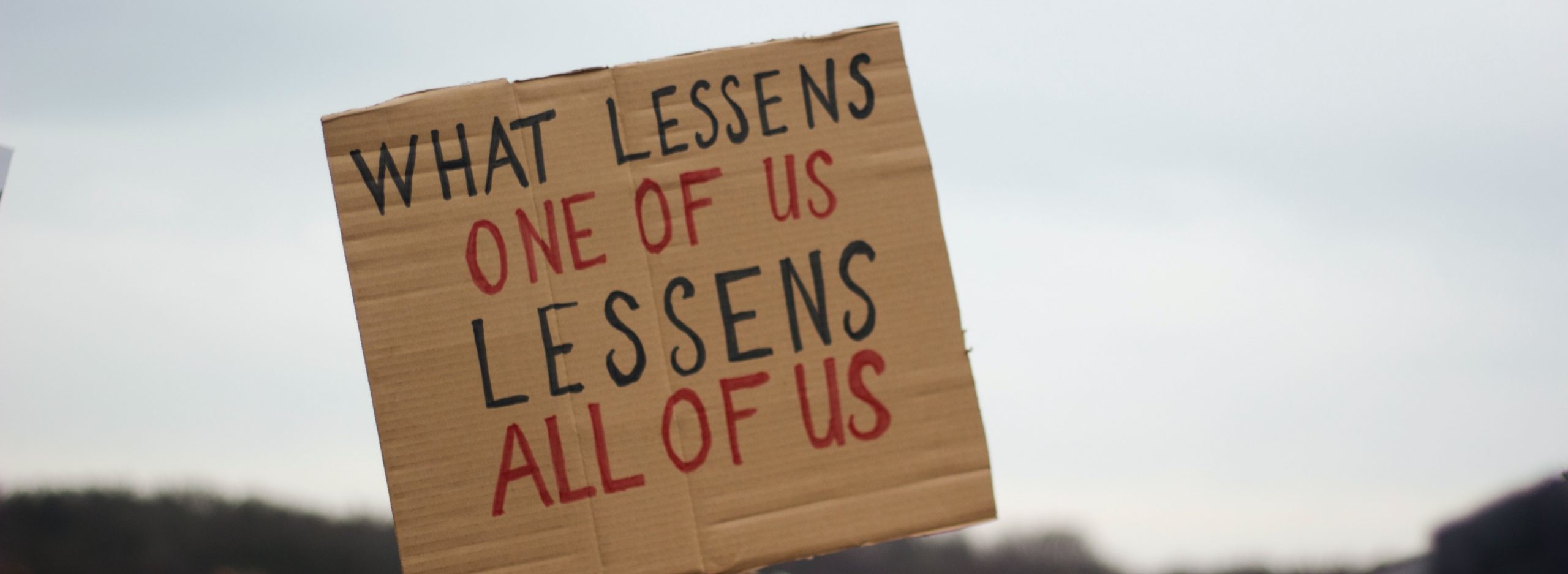I’m lucky enough to be involved in lots of interesting things, working with smart people on issues that really matter. The Programme Advisory Group for Friends Provident Foundation is one of my favourites. The other members of the group bring deep expertise on sustainability and how the economy could work better for everyone, and I learn a huge amount every time we meet. Most of all, it’s a privilege to hear some of the most creative and exciting ideas to make our economic system fairer and greener.
Having just completed my second year on the Programme Advisory Group, I wanted to share my reflections on what excites us in a proposal, as well as some of the things that we often feel could make good ideas even stronger. It’s important to say that we are not a decision-making body. There have been times when a proposal we’ve loved hasn’t been funded, and vice versa. So I’m afraid I can’t produce a “cheat sheet” for applicants! This is more an attempt to explain what we think are good signs that proposals are really engaging with systems change, based on the privileged insight we’ve gained from seeing lots of them. Hopefully, it will be helpful for organisations grappling with these big systems issues, whether or not they end up applying to Friends Provident Foundation.
We want applicants to succeed. We want to see great proposals that have a real chance of making the economy more inclusive, more equitable and more sustainable. In summary, we look for:
• Collaborative approaches that contribute to a wider movement for change
• Contextual understanding showing how applicants will seize wider opportunities for change
• Communication approaches to engage and persuade audiences
• Commitment to tackling power dynamics
• Credible delivery plans
Systems are complex, with many different actors responding to different pressures. Changing how systems work requires action across all these different fronts, which means working with the widest possible range of partners and allies. We are always looking for proposals with strong links to wider movements for change, where it’s clear how the applicant will contribute and add value to the work of others. Proposals by “lone wolves”, which don’t recognise what else is going on, or even duplicate the work of others, feel much weaker.
Similarly, we look for evidence that applicants understand the wider context for change, from specific policy opportunities to shifts in the narrative that might allow new approaches to flourish. As you’d expect from deeply engaged, passionate organisations, most applicants have pretty good antennae. We often see common themes in each round, reflecting current opportunities – and this is another reason to look for collaborations that can maximise the chances of seizing these.
As well as spotting these windows, it’s important to think about how your idea will reach the audience you want to change. We tend not to share the optimism of applicants who expect their innovative project or interesting research report to be warmly welcomed and taken up into wider policy or practice, without explaining who might be interested and why, or how they will be engaged. Especially with the biggest “opportunities”, such as the forthcoming UN Climate Change Conference in Glasgow, there is a lot of competition for attention, and we want to understand how applicants intend to cut through the noise.
Of course, it’s no good being heard if your audience can’t, or won’t, listen. So we look for proposals that grapple with the drivers and incentives that sustain the current system – for example, by rethinking the mental models and framings that underpin mainstream economic thinking, or fostering alternative ways to make decisions or allocate resources. We are less excited by technical tweaks that improve the information available to the same decision-makers. Even advocacy to change or enforce existing regulations can feel a little disappointing, if it doesn’t try to get at the logic shaping decisions. This work does matter – it’s important to stop bad things happening – but it’s even better to start something good.
Another way of putting this is that systems change is unavoidably bound up with power. What we want to see most of all are proposals that tackle power imbalances, and put people whose voices aren’t heard first.
Finally, none of this matters if it doesn’t happen. So as well as the ambition, generosity, creativity and insight that can lead to real impact on systems, we also ask questions about feasibility and whether applicants have requested enough money to deliver their plans. It takes a rare skill to marry big dreams with realistic plans, but that’s why it’s so great to see so many Systems Change applicants who pull it off.






